
A quantity of essential nutrients like milk protein, vitamins and minerals is a natural source. While many people opt for skim milk, assuming that it is healthy. Recent research indicates that even full fat milk cannot pose a risk for health. Dietary guidelines recommend people to select creamless or low -fat milk instead of full milk.
![]()

However, new research is called this advice as a question. They also suggest that saturated fat found in milk cannot cause heart disease. Our article today examines three types of milk and their nutritional facts in depth. It also analyzes in detail the health benefits of various types of cow's milk and the possible risks and research conducted behind them.
Cow's type of milk and their nutritional information
![]()
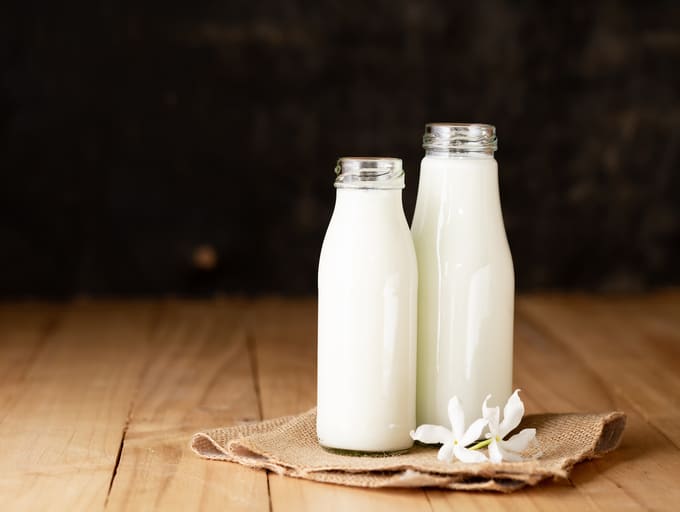
The milk found on Amumam Dairy sell three main types of milk according to its fat material:-
![]()

- Complete milk with 3.25% fat
- Low fat milk with 1% fat
- Skim or fat free milk with 0% fat
The following is the details of various types of milk per 250 grams of glass nutrients.
| Nutrients | Whole Milk | Low fat milk | Skim Milk |
| Calories | 152 | 106 | 83.6 |
| Protein | 8.14 g | 8.32 g | 8.44 g |
| Fat | 7.97 g | 2.34 g | 0.19 g |
| Carbohydrates | 11.5 g | 12.7 g | 12.1 g |
| Saturated fat | 4.63 g | 1.4 g | 0.12 g |
| Calcium | 306 mg | 310 mg | 325 mg |
| Vitamin d | 2.39 MCG | 2.61 MCG | 2.71 MCG |
| Vitamin A | 79.7 Mcg | 143 mcg | 157 mcg |
| Iodine | 94.4 mcg | 89.1 mcg | 87.8 mcg |
The fat present in milk helps our body absorb fat -soluble vitamins such as A, E and D. When additional fat of milk is inserted in fat, it helps in removing the amount of fat and also promotes these nutrients.
![]()
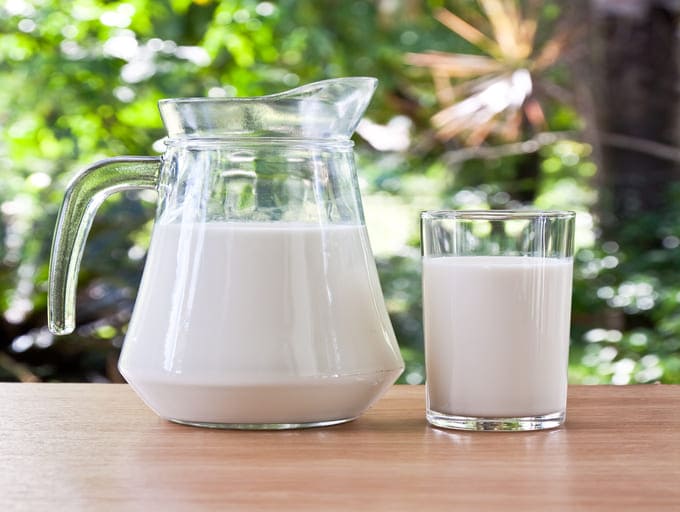
Some manufacturers also add omega-3 fatty acids to their milk. A research conducted in 2019 indicates that omega-3 is fatty acids. Which is in small amounts in milk. The reason for this is that the kind of animal foods they are given to eat, due to this, they do not change them into omega-3 fatty acids.
What type of milk is healthy for health,
![]()

We usually inspire people to select fat -free or low fat milk instead of drinking full milk for Indians. This approach is to help a person's saturated fat consumption of less than 10% calories per day and reduce the risk of chronic diseases.
![]()

Nonfat nutritional profiles in various types of milk from the table above are similar. Since manufacturers add vitamin A and vitamin D to milk. Therefore, people consuming milk with low or nonfat version usually do not miss taking these nutrients. People who want to keep their weight in the middle category or maintain. Choosing a skim or low fat milk can be an intelligent option for them, as they contain small amounts of calories.
Benefits of milk health and essential nutrients:-
![]()

Milk is the source of many essential nutrients including:
- Protein, fat and carbohydrates
- Calcium, magnesium, zinc, potassium, phosphorus, iodine and minerals including selenium
- Vitamin A, B6, B12, D, and Vitamins
![]()

A cup of cream extracted has 325 mg of calcium. Which fulfills about one -third of an adult person's requirement to 1,000 mg required. Milk protein Casein And buttermilk is a series of high intensity amino acids.
![]()
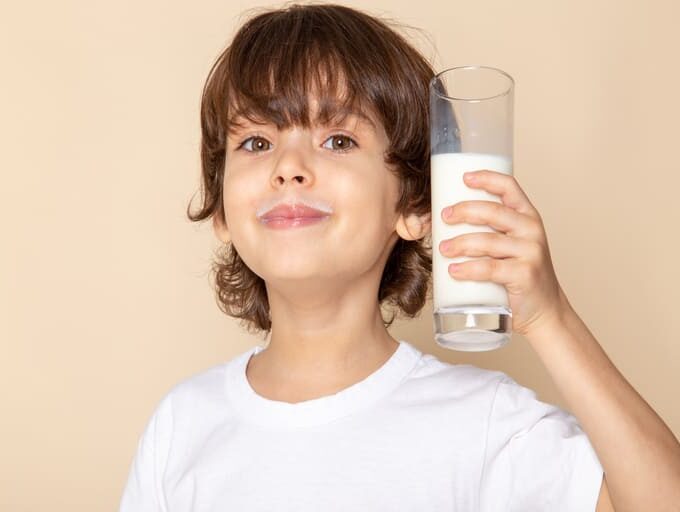
Which play an important role in our body's muscle synthesis. Milk contains polysturated fatty acids. Which protects the body from swelling and heart disease. Learn deeply about the health topics you care for most. Our blogs are always connected with regular upcoming posts of health fitness tips.
risk,
![]()

One of the common concerns about milk is the amount of fat found in the whole milk. Today's lifestyle advises people to consume low fat or skim milk instead of whole milk. However, according to a 2018 research, it is a type of lipid hypothesis that increases the risk of heart disease to a great extent due to increased diet with saturated fat and cholesterol within the body.
![]()
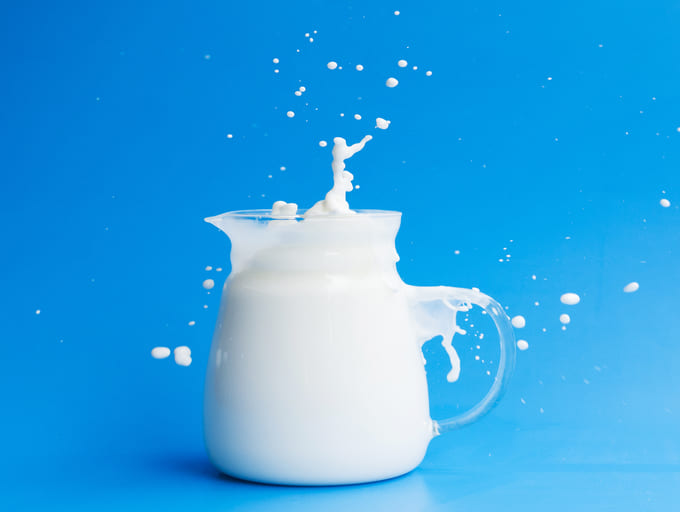
Another possible risk of milk intake is lactose intolerance. According to health experts, Lactose intolerance is most common in the following groups of some people:
- Asian American
- African Americans
- Mexican American
- native Americans
![]()
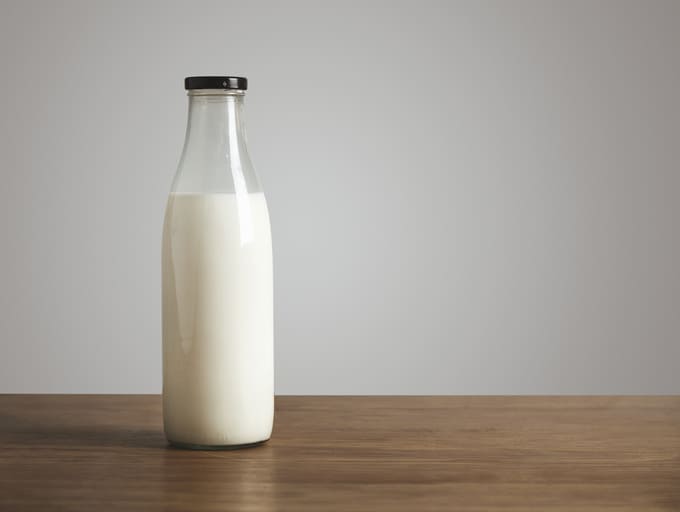
lactose intolerance People are unable to digest lactose, milk found in milk. As a result, the condition can cause inflammation, gas or diarrhea. A person with lactose intolerance can consume lactose -free dairy or plant -based milk such as oats or almond milk. However, dietary guidelines recommend that infants under 12 months of age do not consume cow's milk to replace human milk or baby formula. Yes, they can drink full milk since the age of 1 year.
Summary:-
![]()

Milk is a nutrient -rich food that provides suitable source of protein, vitamins and minerals. Although the current lifestyle advice advises people to choose skimmed or low -fat milk, recent research indicates that the entire milk does not increase the risk of heart disease. There is a dispute about the contribution of saturated fat diet and cholesterol in heart disease.
![]()

Without decisive evidence, choosing one kind of milk according to one's weight, body structure goals and current health status and risks can be a sensible approach. People who manage their weight or at risk of chronic diseases can limit their saturated fat intake. Along with this, more complete foods and plant -based foods can be consumed. They should also associate this approach with regular physical activity.
Also read, Is drinking too much milk also harmful to health? , 10 benefits of drinking poppy milk




